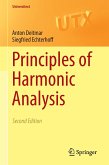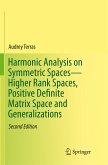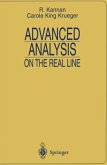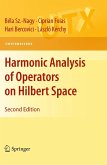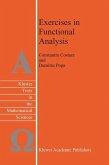The tread of this book is formed by two fundamental principles of Harmonic Analysis: the Plancherel Formula and the Poisson S- mation Formula. We ?rst prove both for locally compact abelian groups. For non-abelian groups we discuss the Plancherel Theorem in the general situation for Type I groups. The generalization of the Poisson Summation Formula to non-abelian groups is the S- berg Trace Formula, which we prove for arbitrary groups admitting uniform lattices. As examples for the application of the Trace F- mula we treat the Heisenberg group and the group SL (R). In the 2 2 former case the trace formula yields a decomposition of the L -space of the Heisenberg group modulo a lattice. In the case SL (R), the 2 trace formula is used to derive results like the Weil asymptotic law for hyperbolic surfaces and to provide the analytic continuation of the Selberg zeta function. We ?nally include a chapter on the app- cations of abstract Harmonic Analysis on the theory of wavelets. The present book is a text book for a graduate course on abstract harmonic analysis and its applications. The book can be used as a follow up of the First Course in Harmonic Analysis, [9], or indep- dently, if the students have required a modest knowledge of Fourier Analysis already. In this book, among other things, proofs are given of Pontryagin Duality and the Plancherel Theorem for LCA-groups, which were mentioned but not proved in [9].
From the reviews:
"Principles of Harmonic Analysis is an excellent and thorough introduction to both commutative and non-commutative harmonic analysis. It is suitable for any graduates student with the appropriate background ... . In summary, this is a superb book. ... it is extremely readable and well organized. Graduate students, and other newcomers to the field, will greatly appreciate the author's clear and careful writing." (Kenneth A. Ross, MAA Online, February, 2009)
"The book under review is a nice presentation of all the standard, basic material on abstract harmonic analysis. ... The most welcome aspect of the book under review is the inclusion of a discussion of the trace formula, a rather unusual feature in an introductory book on harmonic analysis. ... This is a nice addition to the literature on the subject." (Krishnan Parthasarathy, Mathematical Reviews, Issue 2010 g)
"Principles of Harmonic Analysis is an excellent and thorough introduction to both commutative and non-commutative harmonic analysis. It is suitable for any graduates student with the appropriate background ... . In summary, this is a superb book. ... it is extremely readable and well organized. Graduate students, and other newcomers to the field, will greatly appreciate the author's clear and careful writing." (Kenneth A. Ross, MAA Online, February, 2009)
"The book under review is a nice presentation of all the standard, basic material on abstract harmonic analysis. ... The most welcome aspect of the book under review is the inclusion of a discussion of the trace formula, a rather unusual feature in an introductory book on harmonic analysis. ... This is a nice addition to the literature on the subject." (Krishnan Parthasarathy, Mathematical Reviews, Issue 2010 g)


